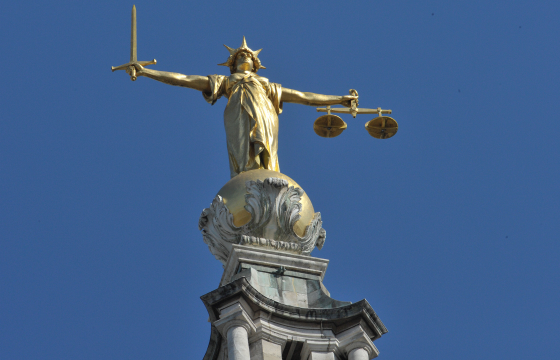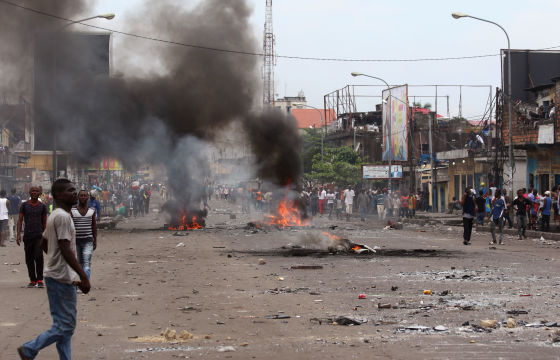The capital of the Democratic Republic of Congo (DR Congo) is in a state of chaos as deadly clashes between police and political protesters continue, claiming dozens of lives. Violence broke out yesterday (19 September) in Kinshasa during a march protesting against delays to the presidential election, which are perceived as a bid by President Joseph Kabila to extend his mandate to a third term.
Interior Minister Evariste Boshab confirmed that three police officers were among the 17 reported to have been killed during the protests, including one who was burned alive. Government spokesman Lambert Mende called the demonstrations a pre-meditated criminal act, Associated Press reports.
"This wasn't a demonstration at all but an attempt to unleash civil war in the city of Kinshasa," he said. "The authorities decided to put an end to the protest and disperse it."
The opposition says 50 protesters were killed in yesterday’s clashes and has accused the Government of using live bullets against peaceful protesters, reports BBC Afrique. On Monday (19 September) night, the headquarters of three opposition parties were torched. Members of the presidential guard were behind one of the attacks, two injured witnesses told BBC Afrique.
A spokesman for the Congolese army told the BBC he had no comment to make on the accusations. At least two burned bodies have been found in the destroyed offices of the DR Congo’s main opposition Union for Democracy and Social Progress (UDPS).
European nations will discuss the possibility of imposing sanctions on the DR Congo, French Foreign Minister Jean-Marc Ayrault told Reuters reporters in New York, where he is attending the United Nations General Assembly.
The US has already called for targeted sanctions to be imposed on officials in the Kabila Government, including visa bans and asset freezes, until the President publicly commits to a peaceful transition of power. Last week, Congolese Bishops made an urgent appeal for peace amid mounting political tension. They called on the international community to support DR Congo in finding a solution to the political situation, and to back a democratic election process.
Observers have for some time questioned whether DR Congo will hold the presidential election, scheduled for 27 November. The country's electoral commission has indicated the vote would not be held until next year, saying the voter list would not be formalised before July 2017. Over the weekend, the commission made an official request to the country's constitutional court for a delay of the vote.
Joseph Kabila, who came to power after his father Laurent Desire's assassination in 2001, has yet to announce whether he will pursue another term in office, though it is constitutionally prohibited.
The violence comes amid growing fears that the delay could lead to a new civil war. From 1997 to 2003 the country suffered a civil war that drew in neighbouring countries, and since then different armed groups in the east have been a continuing source of instability.




 Loading ...
Loading ...